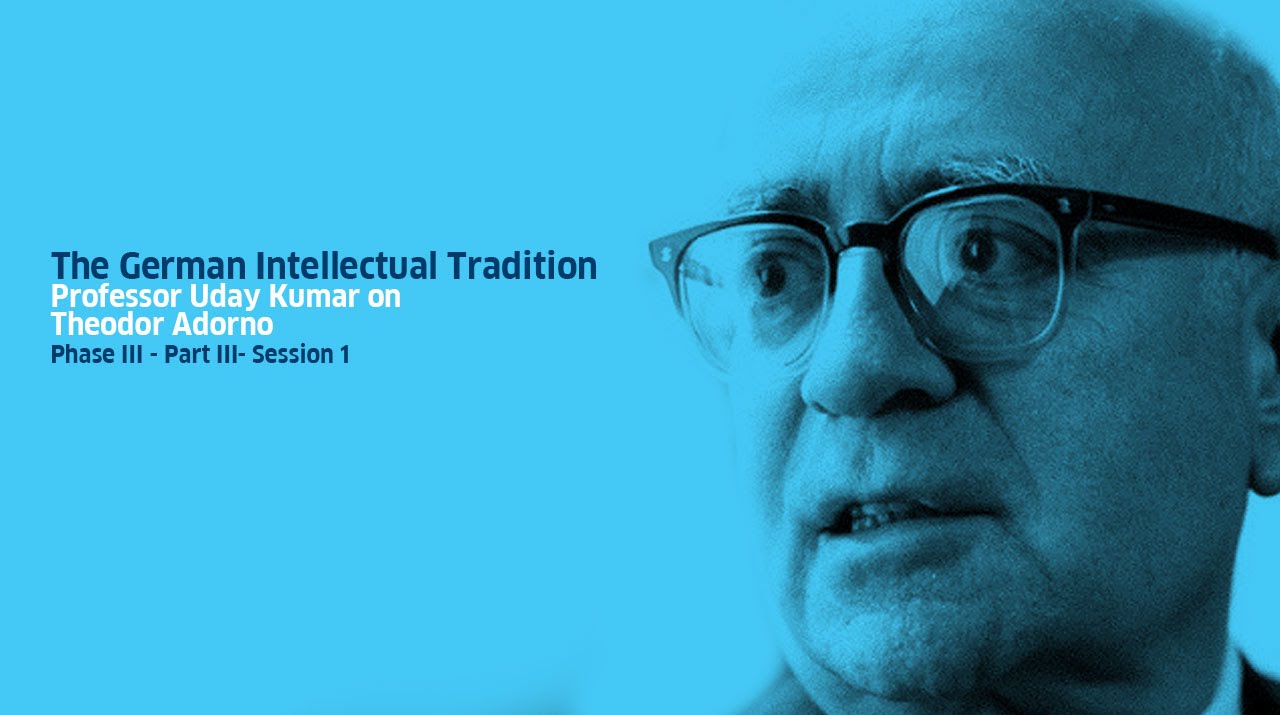Goethe-Institut / Max Mueller Bhavan Kolkata
A series of lectures by eminent scholars; coordinated by Professor Sobhanlal Datta Gupta, former S. N. Banerjee Professor of Political Science, Calcutta University.
As we know, the German intellectual tradition is of crucial importance for understanding of social sciences. Many important clues to the understanding of new perspectives like the debate on modernity and Enlightenment, postmodernism, post-colonialism, identity and self, etc. can be traced to the contributions of the German tradition. Considering the importance of this theme, Goethe-Institut / Max Mueller Bhavan Kolkata brings a programme of lectures on the following thinkers, namely, Kant, Hegel, Marx, Max Weber, Nietzsche, Freud, Husserl, Heidegger, Horkheimer, Adorno, Marcuse, Lukács, Popper, Gadamer, Wittgenstein, Arendt, Benjamin and Habermas. The first phase of the Programme (September, November, 2013; January, March, 2014) will cover four lectures on Kant, Hegel, Marx and Max Weber.
Each thinker would be discussed in two sessions, the duration being of two hours each. The sessions will be addressed by eminent resource persons, followed by interaction with the participants.
Source
Part III – Theodor Adorno: Session I by Professor Udaya Kumar




thanks
28:44
n Adorno & Horkheimer Clips
That is not the voice I expected Horkheimer to have
IT HAS BEEN DELIBERTLY SPEEDED UP TO MAKE HIM SOUND FUNNY!
DOWNLOAD THE FILE AS WAV. THEN USE "Audacity" to slow it dowen manually.
Or SLOW it down on Youtube to 0.75
DELIBERATE CORRUPTION by AMERIcoons to SLANDER Theo. Ardono
Commented on Adorno & Horkheimer ClipsWhat I wonder is: Since F.D.R. denied the Holocaust and Denied Jewish were being murdered, and Roosevelt Turned Away with Threats of Torpedo Attack of the St. Louis. Yet he allowed Frankfurt School exiles into USA! Why did he NOT SAVE COMMON JEWS?
I must say that I never became critically interested in Theo. Adorno and Frankfurt School until I noticed certain people attacking these Philosophers as enemies of American Democracy. Jan Irvin of 'Gnostic """Something""" com started sending me Hate Emails and told me 'your Family's jew-blood is responsible for all murderers and wars in 20th. Century" My Great-Grandfather was a Uncle of Edw. L. Bernays.
I knew from University in 1950's that Theo Adorno and Frankfurt were Jews that U.S.A. '"Allowed" to emigrate to USA for Safety from Nazis.
Frankfurt School, group of researchers associated with the Institute for Social Research in Frankfurt am Main, Germany, who applied Marxism to a radical interdisciplinary social theory. … Adorno, Erich Fromm, Herbert Marcuse, and Walter Benjamin.
Adorno's commitment to avant-garde music formed the backdrop of his subsequent writings and led to his collaboration with Thomas Mann on the latter's novel Doctor Faustus, while the two men lived in California as exiles during the Second World War.
What I wonder is: Since F.D.R. denied the Holocaust and Denied Jewish were being murdered, and Roosevelt Turned Away with Threats of Torpedo Attack of the St. Louis. Yet he allowed Frankfurt School exiles into USA! Why did he NOT SAVE COMMON JEWS?
During World War II, the Motorschiff St. Louis was a German ocean liner infamously known for carrying more than 900 Jewish refugees from Nazi Germany in 1939 intending to escape the Holocaust to disembark in Cuba. However they were denied permission to land. … Many were later caught in Nazi roundups of Jews in occupied countries, and
the story of the St. Louis, an ill-fated passenger ship full of Jewish … give priority to immigrants seeking refuge from racial or religious persecution. … Denied entry to the United States, these European refugees line the … Finally, the St. Louis returned to Europe and several nations granted asylum to the refugees.
Whitman’s “smoking gun” is the transcript of a June 5, 1934, conference
of leading German lawyers gathered to exchange ideas about how best to
operationalize a racist regime. The record reflects how the most extreme
among them, who relied on Krieger’s synoptic scholarship, were
especially drawn to American legal codes based on white supremacy. The
main conceptual idea was Freisler’s. Race, he argued, is a political
construction. In both America and Germany, the importance and meaning of
race for the most part had been determined less by scientific realities
or social conventions than by political decisions enshrined in law.
But even indisputable evidence of the Germans’ intense interest in
American models doesn’t clinch a formative role for U.S. racial law, as
Whitman himself is careful to acknowledge. After all, Nazism’s
intellectual and political leaders may well have utilized American
examples merely to make more legitimate the grotesque designs they
already planned to pursue. In any case, answering the question of
cross-national influence is ultimately less important than Whitman’s
other goal, which is to examine the status of racial hierarchy in the
United States through Nazi eyes. “What the history presented in this
book demands that we confront,” he writes, “are questions not about the
genesis of Nazism, but about the character of America.”
Kumar has such a profound and in my oppinion, correct understanding of Adorno, that it is a real pleasure lissening to him. What a contrast to all this growing video-series, trying to show that Frankurt school is at the start of the new rise of stasi in germany and western society and is only to be seen as corruption and ideology!
More of refusing Jesus than intellectual barbarism. We are awake!
Phenomenal lecture!
Great. Thanks udayakumar sir
Please enable CC for these videos. Much efficient to follow with subtitles at x1.5-2 speed.
I have listened to a lot of lectures about Adorno, very good ones among those too, and having said that I really enjoyed yours 🙂 Good introduction and approach!
Awesome lecture, thank-you!
I agree.
The totality of my belly is both static and dynamic. I am trying to negate its position in order to experience liberation.